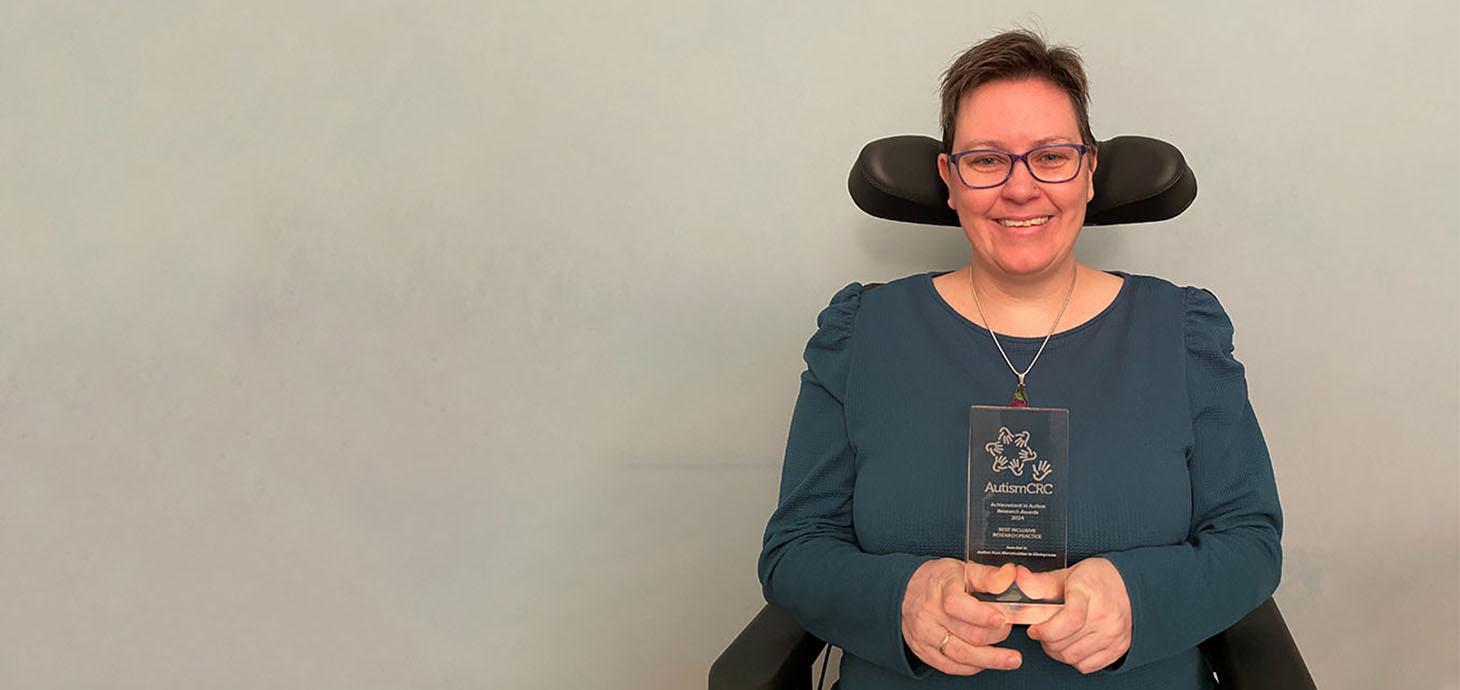
Dr Aimee Brown with her Autism CRC award. (©Aimee Grant)
A Swansea University academic has been recognised for her inclusive research practice that addresses the large gap in understanding of the reproductive health experiences of autistic people, which is under-researched and under-supported in healthcare.
Dr Aimee Grant, a senior public health researcher at the University, has received the research award from Autism CRC, Australia’s independent source of best practice in relation to autism, for her Autism from Menstruation to Menopause project. Dr Grant was herself diagnosed as autistic in 2019.
The eight-year project aims to better understand autistic people’s reproductive health experiences throughout their life. The project will carry out up to 1,000 interviews under the joint leadership of a community council of 11 autistic people which plays a crucial role in guiding the research process and ensuring it meets their community's needs.
The project will examine the data to gain a clear picture of the reproductive health needs of autistic people by understanding the gynaecological, obstetric, and family-planning issues that affect them. With active involvement from the community council, a quality improvement toolkit for autistic people will be produced with the aim to improve their reproductive health and healthcare.
Dr Grant said:
"I'm thrilled that our efforts have been acknowledged by Autism CRC for exemplifying best practices in inclusive research. This award is recognising the efforts of everyone involved in the study – the Community Council, research team and advisors have all played an essential role. I hope that this project will establish a better understanding of the reproductive health needs of autistic people and how these needs can be better met. The study has an ethos of “nothing about us without us”, and I’d like to see this in all autism research.”
Dr Olivia Gatfield, Research and Community Engagement Manager with Autism CRC said:
“This highly impactful project addresses a lack of understanding the reproductive health experiences of autistic people, particularly menstruation and menopause. It embodies true co-production but also capitalises on opportunities to establish infrastructure for future co-designed projects to support an ongoing and sustainable model.”
The research was supported by funding from Wellcome.
